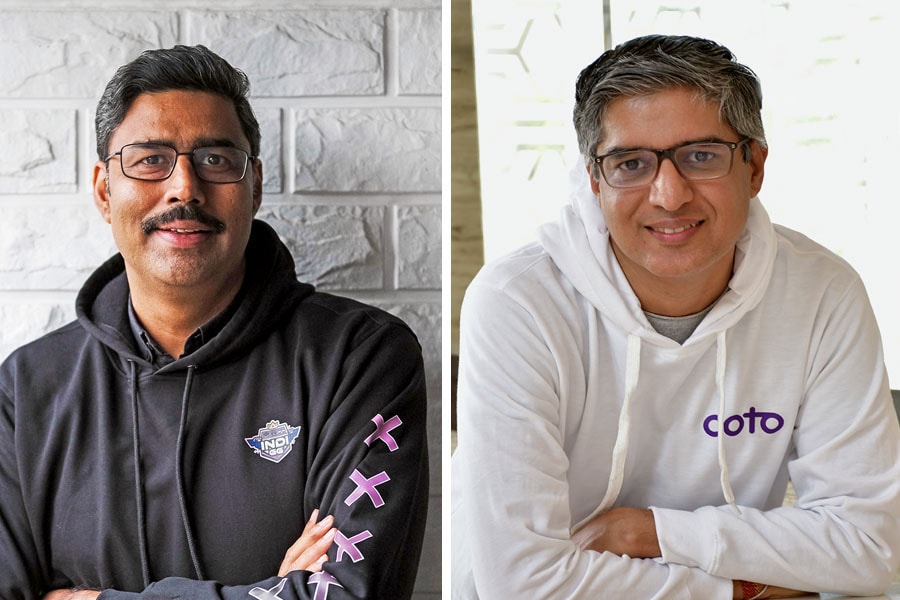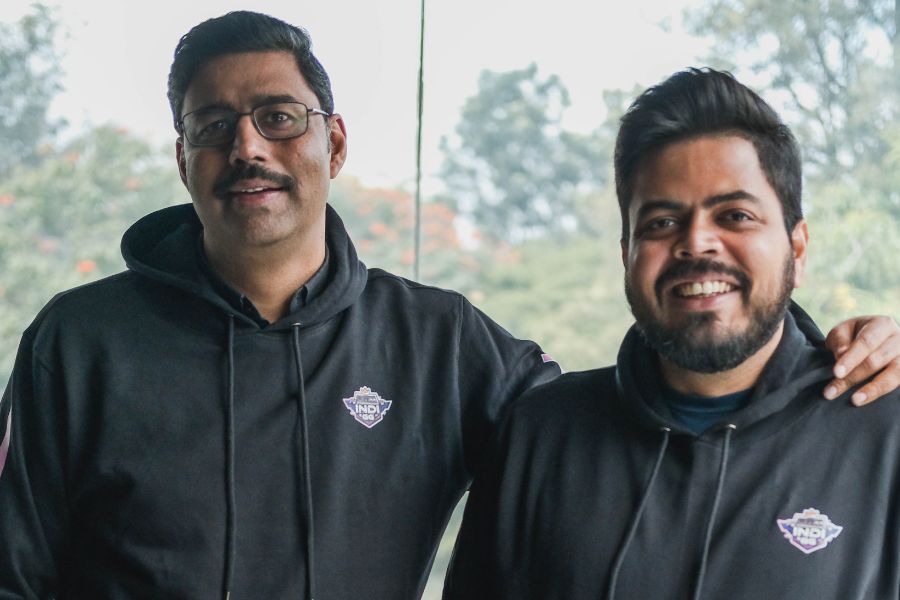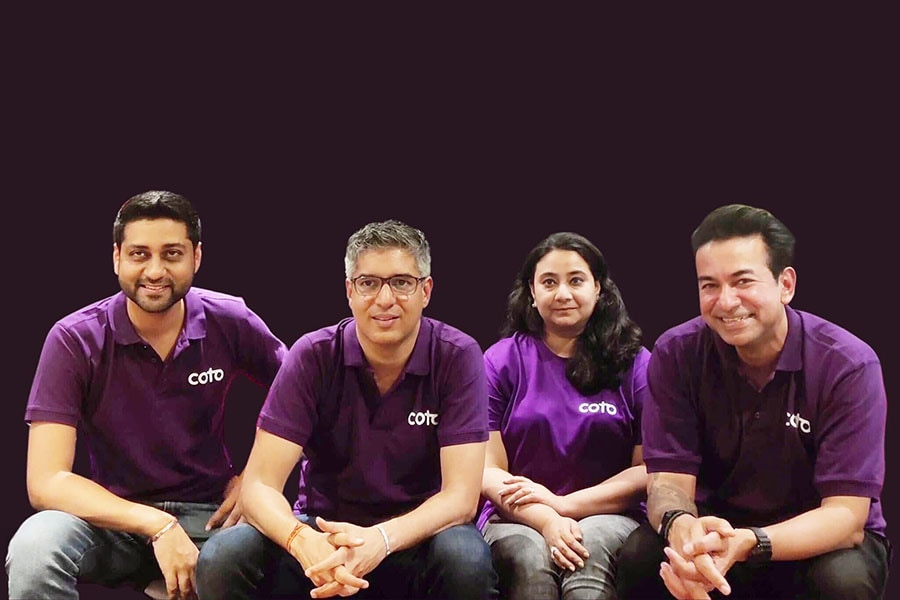
From Web2 to Web3: Two former CEOs bet big with their new startups
Manish Agarwal of Nazara Technologies and Tarun Katial of Zee5 are aiming to disrupt the status quo by giving back control to gamers and content creators
 Manish Agarwal of IndiGG and Tarun Katial of coto
Manish Agarwal of IndiGG and Tarun Katial of coto
Last year in December, Manish Agarwal stepped down as the chief executive officer of diversified gaming and sports media company Nazara Technologies. After spending seven years at the company, Agarwal decided to launch his own startup in the Web3 world.
Agarwal, along with Ishank Gupta, an angel investor, has come up with a new Web3 gaming venture called Kratos Studios. They also recently acquired IndiGG, an established brand, for access to marquee Web3 ecosystem partners. Kratos Studios has raised $20 million from Accel, Prosus Ventures and Nazara Technologies, among others.
IndiGG, a part of Kratos Studios, is building a Web3 gaming DAO (decentralised autonomous organisation) to onboard over 500 million Indian gamers onto the Web3 gaming ecosystem and enable earnings for its members. It partners with gaming studios and developers globally, increasing their chances of success by creating relevant micro communities.
IndiGG’s mission is to make it easy for millions of gamers in India and other emerging markets to onboard their activity log (micro history) on blockchains without them being bothered about tech friction or knowing what blockchain is. Agarwal says the adoption will be driven by a strong sense of underlying utility which a gamer’s micro history unlocks for gamers in the form of asset ownership, reputation ownership and interoperability. “We are solving for friction in wallet creation, on-ramping and off-ramping besides educating gamers on how to leverage their disposal time and skill to earn micro income or supplementary income.”
IndiGG seeks to unlock the value of gamers by making them owners of their identity and enabling their identity on-chain. This way, game developers can pay users for their skills and their time with engaged communities and generate higher ROI. IndiGG does this by leveraging Web3 for asset and identity ownership, and disrupting the traditional model of in-game asset purchases where gamers do not own these assets.










